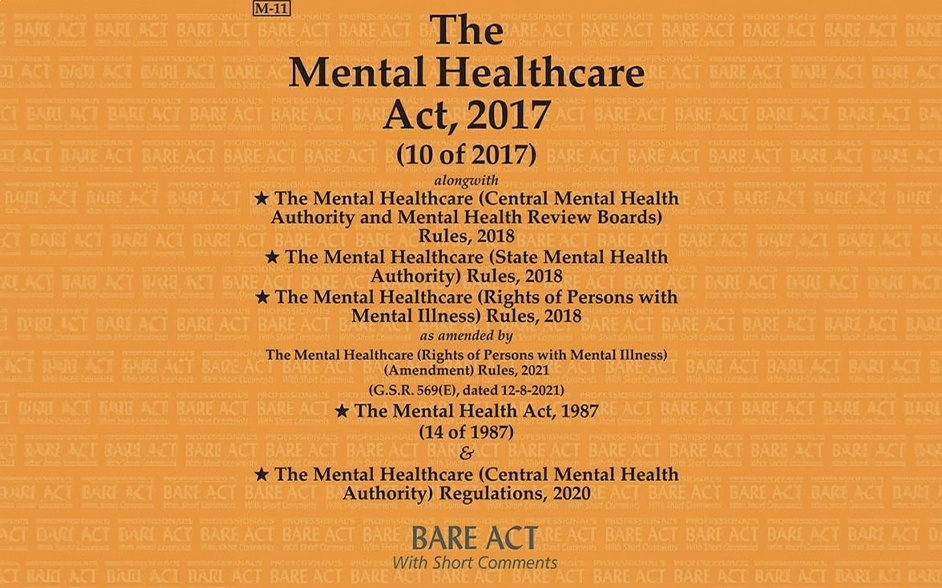- Mumbai, New Delhi, Bangalore
- (+91) 81518 30000
- WhatsApp Now
- contact@vedawellnessworld.com
Let us try and summarize this in One Paragraph
The Mental Healthcare Act, 2017 is a progressive legislation by the Government of India that fundamentally redefines how mental health is perceived, treated, and protected in the country. It replaces the archaic Mental Health Act of 1987 and is rooted in human rights, aligning with the UN Convention on the Rights of Persons with Disabilities (UNCRPD). The law guarantees every individual access to mental healthcare services, decriminalizes suicide attempts, mandates government responsibility to provide treatment, and gives patients autonomy over treatment decisions through mechanisms like advance directives and nominated representatives. This Act marks a powerful move from custodial care to rights-based mental health support.
The Mental Healthcare Act, 2017 was enacted to ensure access to mental healthcare and protect the rights of people with mental illness. This Act replaces the outdated Mental Health Act, 1987, and is in compliance with India’s obligations under the UN Convention on the Rights of Persons with Disabilities (UNCRPD). The new law focuses on dignity, autonomy, and community-based care instead of custodial treatment.
Mental illness under this Act refers to a substantial disorder of thinking, mood, perception, orientation, or memory that grossly impairs judgment, behavior, capacity to recognize reality or ability to meet the ordinary demands of life. Intellectual disability (mental retardation) is not included under this definition unless associated with mental illness.
The Act bestows a comprehensive set of rights:
This progressive mechanism allows individuals to:
This is one of the most significant reforms. Under this Act:
These are quasi-judicial bodies tasked with:
Each district will have at least one MHRB consisting of a judicial officer, psychiatrist, medical practitioner, and two members from mental health NGOs or persons with mental illness.
These statutory bodies regulate mental health services and professionals. Their functions include:
The Act provides detailed guidelines for:
Admission for longer than 30 days or involving restraint requires oversight from the MHRB.
The law imposes several critical restrictions to protect patients:
The State and Central Governments have clear duties:
The Act mandates that:
The law outlines penalties for professionals or establishments violating provisions. These include monetary fines and possible de-registration of institutions.
Since its enactment, the Act has been widely hailed for its rights-based approach. However, implementation challenges persist:
Despite challenges in implementation—like infrastructure gaps, shortage of trained professionals, and varying levels of awareness—the Mental Healthcare Act, 2017 stands as a milestone in India’s healthcare journey. It boldly shifts the focus from treating mental illness in isolation to treating individuals with respect, autonomy, and compassion.
This Act doesn’t just prescribe clinical guidelines; it reimagines how society views mental health. By granting people the right to choose their treatment, speak up without fear, and access care regardless of economic status, it lays the groundwork for a more humane, inclusive, and modern mental health ecosystem in India.
For professionals, policymakers, and researchers, this law is both a foundation and a call to action—to ensure that the rights promised on paper translate into real-world impact. With continued investment, awareness, and collaboration, the Mental Healthcare Act, 2017 has the potential to transform not just systems—but lives.
